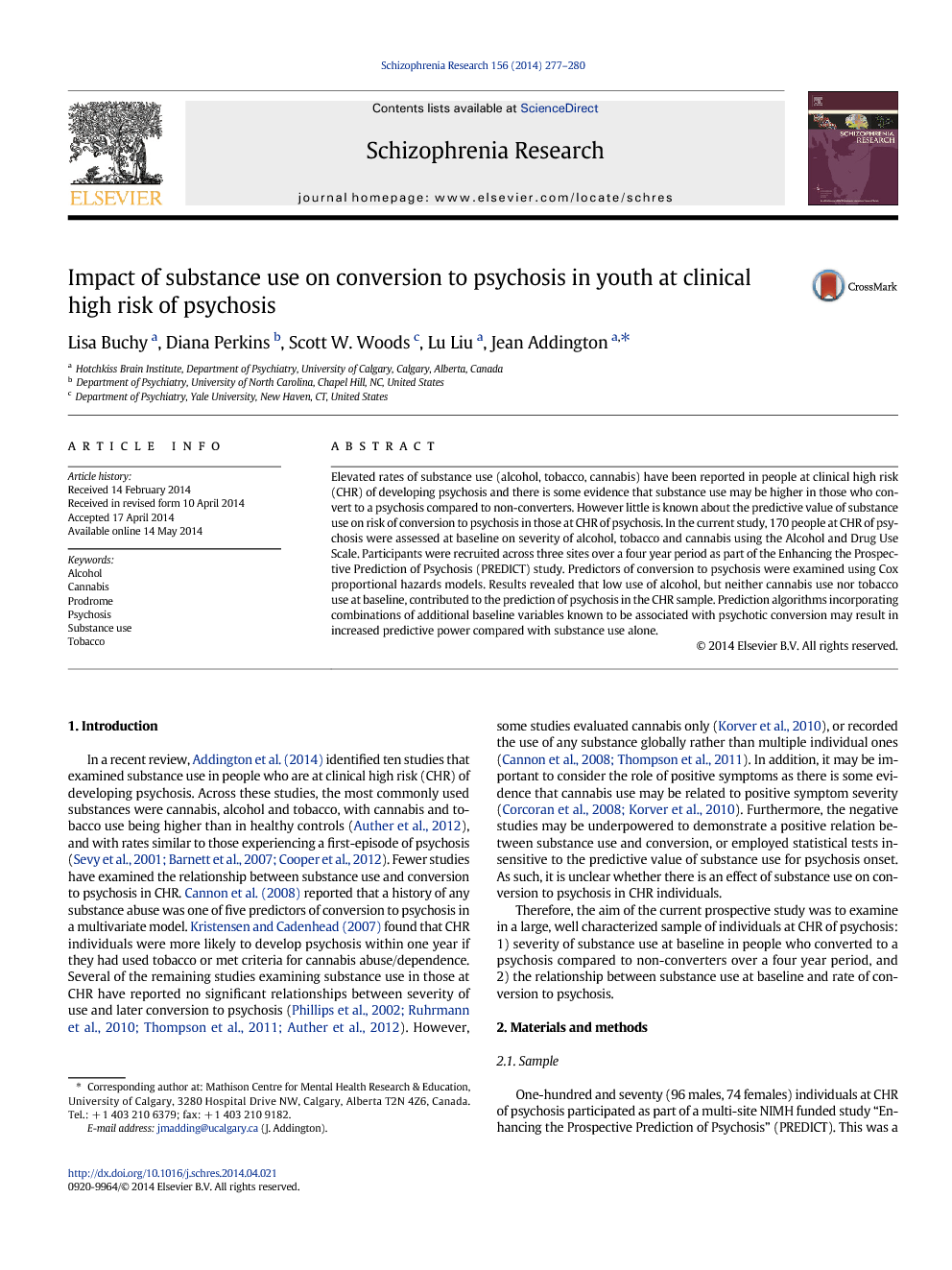Elevated rates of substance use (alcohol, tobacco, cannabis) have been reported in people at clinical high risk (CHR) of developing psychosis and there is some evidence that substance use may be higher in those who convert to a psychosis compared to non-converters. However little is known about the predictive value of substance use on risk of conversion to psychosis in those at CHR of psychosis. In the current study, 170 people at CHR of psychosis were assessed at baseline on severity of alcohol, tobacco and cannabis using the Alcohol and Drug Use Scale. Participants were recruited across three sites over a four year period as part of the Enhancing the Prospective Prediction of Psychosis (PREDICT) study. Predictors of conversion to psychosis were examined using Cox proportional hazards models. Results revealed that low use of alcohol, but neither cannabis use nor tobacco use at baseline, contributed to the prediction of psychosis in the CHR sample. Prediction algorithms incorporating combinations of additional baseline variables known to be associated with psychotic conversion may result in increased predictive power compared with substance use alone.
In a recent review, Addington et al. (2014) identified ten studies that examined substance use in people who are at clinical high risk (CHR) of developing psychosis. Across these studies, the most commonly used substances were cannabis, alcohol and tobacco, with cannabis and tobacco use being higher than in healthy controls (Auther et al., 2012), and with rates similar to those experiencing a first-episode of psychosis (Sevy et al., 2001, Barnett et al., 2007 and Cooper et al., 2012). Fewer studies have examined the relationship between substance use and conversion to psychosis in CHR. Cannon et al. (2008) reported that a history of any substance abuse was one of five predictors of conversion to psychosis in a multivariate model. Kristensen and Cadenhead (2007) found that CHR individuals were more likely to develop psychosis within one year if they had used tobacco or met criteria for cannabis abuse/dependence. Several of the remaining studies examining substance use in those at CHR have reported no significant relationships between severity of use and later conversion to psychosis (Phillips et al., 2002, Ruhrmann et al., 2010, Thompson et al., 2011 and Auther et al., 2012). However, some studies evaluated cannabis only (Korver et al., 2010), or recorded the use of any substance globally rather than multiple individual ones (Cannon et al., 2008 and Thompson et al., 2011). In addition, it may be important to consider the role of positive symptoms as there is some evidence that cannabis use may be related to positive symptom severity (Corcoran et al., 2008 and Korver et al., 2010). Furthermore, the negative studies may be underpowered to demonstrate a positive relation between substance use and conversion, or employed statistical tests insensitive to the predictive value of substance use for psychosis onset. As such, it is unclear whether there is an effect of substance use on conversion to psychosis in CHR individuals.
Therefore, the aim of the current prospective study was to examine in a large, well characterized sample of individuals at CHR of psychosis: 1) severity of substance use at baseline in people who converted to a psychosis compared to non-converters over a four year period, and 2) the relationship between substance use at baseline and rate of conversion to psychosis.


